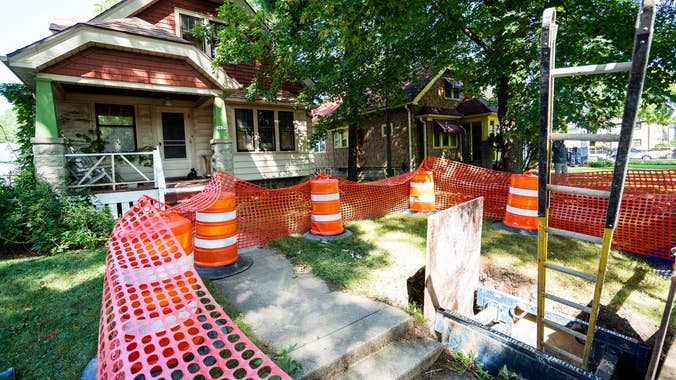New rule would require Wisconsin to replace all lead pipes by 2037
From the Article:
The federal government is proposing that cities replace all of their lead pipes by 2037, a timeline shorter than the decades currently estimated in places like Milwaukee.
The Environmental Protection Agency on Thursday released updates to its lead and copper rule, which would push communities across the country to expedite the replacement of lead laterals, the pipes that carry water from the water mains underground to the plumbing within a home.
That means communities across the U.S. could be rid of lead pipes in 14 years, if the rule is approved and communities don't apply for extensions or exceptions.
Radhika Fox, the EPA assistant administrator for water, said the rule could be approved as soon as next year, and then states will be given a three-year compliance period before they have to start hitting the quotas for lateral replacement. But, she said, many communities are already looking to step up their rates of replacement in order to protect residents.
"Many systems are taking a proactive approach to getting the lead out now," she said.
Lead poisoning can bring lifelong consequences, especially for young children. The Wisconsin Department of Health Services reported in 2018 that 9.2% of children age 5 or younger in Milwaukee have elevated blood lead levels.
A Journal Sentinel analysis of state Department of Health Services data earlier this year showed that the highest childhood lead exposure rates in Milwaukee were concentrated in census tracts that were predominantly Black, and had older housing stock and a higher rate of building code violations — a proxy for substandard housing where chipping lead paint is a particular danger for children.
These factors were more strongly linked to childhood lead poisoning rates than other variables, like the presence of lead service lines. Although lead pipes are a known cause of childhood lead exposure, they are present in most parts of the city regardless of demographics and income levels.
Wisconsin has more than 150,000 lead service lines across 92 communities, according to the nonpartisan Wisconsin Policy Forum. Since 1998, more than 73,000 have already been replaced, with 37,000 of those replacements occurring since 2018.
Milwaukee has the most pipes to be replaced, with about 70,000 lead lines. The city has replaced about 6,400 lead service lines since it started systematically replacing them in 2017, according to Milwaukee Water Works.
Milwaukee Mayor Cavalier Johnson has said he wants to replace all of the city's lead pipes in 20 years instead of the original six-plus decades projected.
The EPA's proposed timeline would mean further speeding up that pace.
"It means that we would need to accelerate the pace a little bit faster than we were going to previously and continue accelerating beyond where we thought we might end up to reach the mayor’s 20-year goal," Milwaukee Water Works spokesman Brian Rothgery said.
The state has allocated $30 million to Milwaukee from the Bipartisan Infrastructure Law funding to replace 2,200 lead service lines next year and 800 this year, he said. In total, the city is on pace to replace nearly 1,200 total lead service lines this year, according to the department.
Milwaukee's prioritization plan for lead service line replacement and its existing inventory of lead pipes will give the city a strong foundation to build upon, he said. Still, questions remain about funding to complete the work on the shortened timeline and how stiff competition may become for lead service line workers with other communities looking to replace their pipes within the same period, he said.
Wisconsin earlier this year received $139 million to help address water quality issues, including lead laterals. That money is being awarded to communities currently, and projects are moving forward. After that money from the Bipartisan Infrastructure Law runs out, there will still be grants or loans for communities to use for the cost of replacing additional lead lines, Fox said.
"We're going to have to continue collectively at the local, state and federal levels to work towards more funding to support communities in this effort," she said.



Add comment